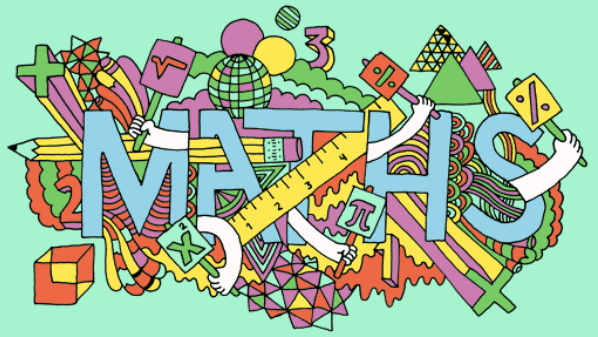-
At Twiss Green teachers use the 2016 national curriculum for mathematics. In early years the curriculum is guided by the Development Matters Curriculum.
-
The national curriculum for mathematics aims to ensure that all pupils:
-
become fluent in the fundamentals of mathematics, including through varied and frequent practice with increasingly complex problems over time, so that pupils develop conceptual understanding and the ability to recall and apply knowledge rapidly and accurately.
-
reason mathematically by following a line of enquiry, conjecturing relationships and generalisations, and developing an argument, justification or proof using mathematical language.
-
can solve problems by applying their mathematics to a variety of routine and non-routine problems with increasing sophistication, including breaking down problems into a series of simpler steps and persevering in seeking solutions.
At Twiss Green it is our intent to teach mathematics in a purposeful and engaging manner which will equip our children with a powerful set of tools to understand and change the world. These tools include automaticity in calculations, logical reasoning, problem solving skills and the ability to think in abstract ways. We want our children to know more and remember more; allowing for automaticity in calculations that will allow children to retain and apply knowledge in a range of reasoning and problem solving situations.
We intend for our pupils to be able to apply their mathematical knowledge across other curriculum subjects. We want children to realise that mathematics has been developed over centuries, providing the solution to some of history’s most intriguing problems. We want them to know that it is essential to everyday life, critical to science, technology and engineering, and necessary for financial literacy and most forms of employment.
It is important to us that all of our children are challenged to do their best and our expectations are aspirational for all. Mathematical skills are needed in all aspects of life and with this in mind we endeavour to ensure that children develop a confident, healthy, curious and enthusiastic attitude towards mathematics that will stay with them into adulthood.
Implementation:
At Twiss Green, we base our maths learning on White Rose Teaching for Mastery principles, using small steps to guide children through units of lessons with a progressive approach, building on prior learning with modelled scaffolds and representations to ensure there is minimal cognitive overload and maximum retention into long term memory, using Rosenshine’s Principles of Instruction model.
Direct teaching focuses on demonstrating, modelling, questioning and discussion with children. Teachers use a variety of visual, aural and kinaesthetic resources and mathematical language during the main part of the daily maths lesson. Children participate actively in activities related to the focus small step prior to collaborative and independent application of their learned knowledge to fluency, reasoning and problem solving challenges.
All lessons start with a short ‘Fluent in Five’ fluency challenge which addressed prior learning. Every learning begins with a short recap of previous learning, either linked with prior lessons within their current unit of learning of prior year group objectives, therefore linking relative previous learning with current learning. Teachers ensure children are knowledgeable with any new and previously learned mathematical vocabulary and children are encouraged to use this language throughout lessons. Misconceptions from previous days’ learning is addressed if needed and new content is delivered in small steps to allow children the opportunities to embed and practise before building on these. A culture of active learning and participation allows all children to progress and be identified with lessons for further support/explanation and children work collaboratively and independently in their application of taught skills.
Through a range of question types and resources, children are provided with initially teacher-modelled questions which they then independently apply in fluency, reasoning and problem solving challenges. All children have access to these questions, through the mastery approach while some children are further challenged with a range of opportunities to apply their greater depth knowledge and understanding.
All children have access to a range of concrete and visual resources to scaffold their learning and links are explicitly made within these resources and to more abstract representations, as highlighted through our calculation policy.
Any misconceptions are addressed by class teachers in a timely fashion, either during a lesson, using immediate same day interventions where possible or the following day in daily ‘Fix It’ time. Children respond to teacher feedback to address misconceptions, consolidate or extend their mathematical learning. A culture of mistakes helping learning is embedded and children develop a reliant approach to their maths learning with a positive growth mindset.
Impact:
Children develop a love of maths and their confidence is increased through carefully planned approach where they build on prior knowledge and learn new content in small steps. Our philosophy of working collaboratively and developing discussion between children and teachers and peer to peer also develops a confidence in mathematical terminology and verbal reasoning and problem solving skills. The impact of these valuable discussions and building on prior learning is evident in children’s independent application of reasoning and problem solving skills. Frequent opportunities to practise previously learned fluency calculations are exercised through daily application of Fluent in Five in years 1 - 6. This allowed children to reduce their cognitive load when building on prior skills within maths lessons.
Our children’s maths journey can be seen through our working walls, where mathematical language, stem sentences and modelled examples of learning are displayed to support the development and retention of ‘sticky learning’.
The children's work reflects the learning that is being taught and the curriculum coverage. It is evident where the new content is and the opportunities to review and reflect previous learning. Children have the opportunity to apply their skills in more formal assessments throughout the academic year.

